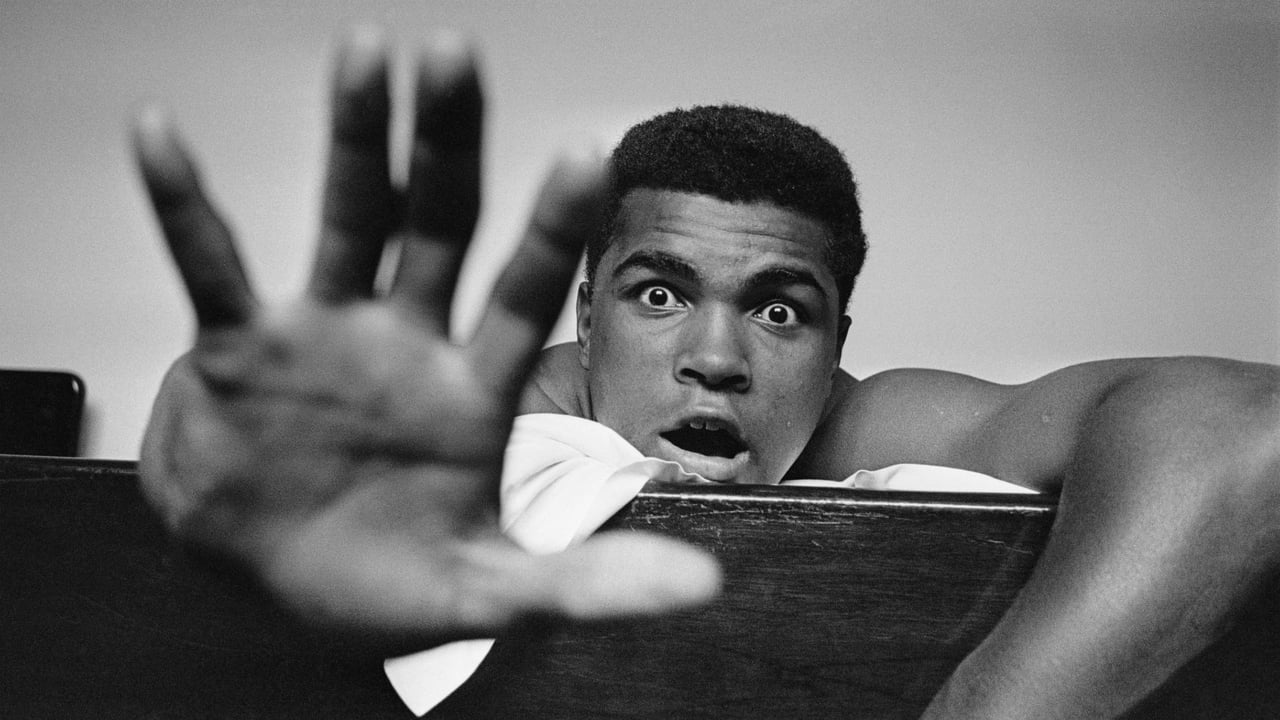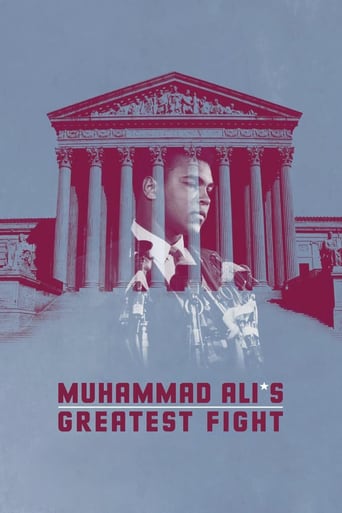

The filmmaking (or rather, videomaking) by Stephen Frears is not particularly noteworthy, nor are some of the secondary performances. Still, the film allows one a rather fascinating peek at various forces (personal and cultural) influencing the Supreme Courts decision with regard to the legality of Mohammed Ali's refusal to serve in the U.S. army. As noted elsewhere, the segments involving the competition between interns are very much a distraction. Only one of the interns is of any narrative importance and his thread could easily have been played out in scenes between him and Judge Harlan (Christopher Plummer). In short, view this for the history, rather than the art.
... View MoreThis movie took me back to those years, now long gone, when the passions of the 1960's and early 70's were unleashed. Change was in the air and the forces of the status quo were pushing back. However, the movie is more about the Supreme Court and the personal relationships between a group of senior jurists, some liberal and some conservative, who divide over Muhammed Ali. Ali was the world's greatest boxer and the issue was his right to refuse to serve in the armed forces during the Vietnam War, when conscription was compulsory for most males. I remember the Supreme Court becoming a lightning rod during the presidency of Richard Nixon, when two of his appointees were repudiated by the Senate. I also remember the lengthy hiatus of Muhammed Ali from the ring. This movie brings it all back. This movie is enlivened by the newsreels of Muhammed Ali, a formidable figure in and out of the ring; President Richard Nixon; and the youth who confronted the established order. In this movie, the fight was on a court divided between the left and right, with a Chief Justice who wanted to avoid a difficult decision. The court appears to be made up of scatterbrained and feeble old men who are not inclined to take risks. I don't know how historically accurate this image is but the Supreme Court is shown as an old boys club, not a group of serious jurists who form a third branch of government. It was made up of all men with only one black, Thurgood Marshall. I found it hard to watch the depiction of Judge Hugo Black as someone seemingly in the throes of senility. I believe in his day he was a great Justice. Frank Langella plays a rather staid, unimaginative and out of touch Chief Justice named Warren Burger, the man who succeeded the great Earl Warren. Christopher Plummer plays Justice John Harlan, a southern conservative who has a passion for the law. He hires a young man who advises him to rule in favour of Ali and his conscientious objector status, following the precedent set in 1955 for the Jehovah's Witnesses. The movie makes the liberal wing look far more sympathetic than their conservative counterparts, who sense no need for the court to rule on the case. But the Justices were capable of following a leader like John Harlan, who showed leadership by ruling on the basis of legal precedent and breaking rank with his boss who wanted a Court that would follow his orders. British Director Stephen Frears shows the Supreme Court as a branch of government that was able to move out of its own comfort zone in spite of itself.
... View MoreWhile being an interesting look at a major event in American history, I thought the general mood of the film didn't really mesh with the subject matter.The locker room bro moments of the clerks felt more like a distraction in my mind from what was really interesting. I understand that throughout the move there's an attempt to compare and contrast the generational differences between the justices and clerks, but really it came out more muddled than insightful. But hey, maybe that's just me.I think a more interesting movie would have been a more focused study into the closed-off perspective of the justice's world. A closed-room style would have fitted well. The hippies lined up outside made to seem distant and strange, even to the blue justices.The movie also seemed a little closed off and lacking much room for audience pondering. Mohammed Ali was valid for conscientious objector status. No question. This might have been the case, but I'd rather come to that conclusion myself.Anyway, it was a fine TV movie. Definitely worth a watch.
... View MoreI had a mixed-reaction to this film. It panders to the audience too much, with the workers in the Supreme Court conversing on subjects that would be obvious to them. Also, at some moments it feels like the plot is jumping from one moment to the next, rather than moving along seamlessly. My third criticism is that it glosses over the likely fact that Ali didn't want to go to the Vietnam War because he didn't want to fight. The movie gives the inaccurate impression that the boxer stood purely on religious grounds. However, that is not what the film is about. It was assumed by the Solicitor General that Ali was honest with his convictions, and this work concerns a fight in the highest court.The main reason to see the HBO movie is Christopher Plummer's fantastic performance as Justice John Marshall Harlan. He plays a reflective man nearing the end of his life beautifully. Christopher and Frank Langella, who plays Chief Justice Warren Burger, have some great scenes together. Additionally, there is some well-chosen historical footage of Ali speaking to the media. If you're a fan of politics or just want to see Plummer knock one out of the park, you will probably enjoy Muhammad Ali's Greatest Fight; but, I think it is overly simplistic.
... View More